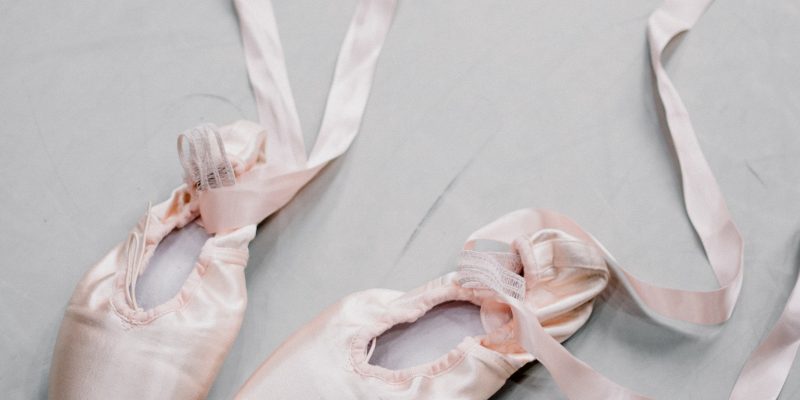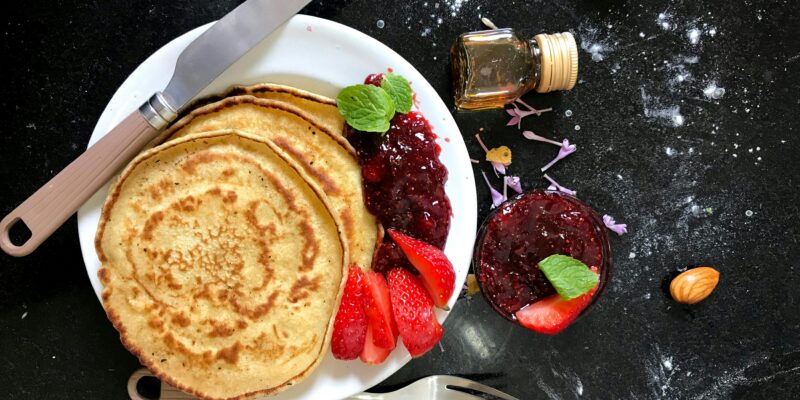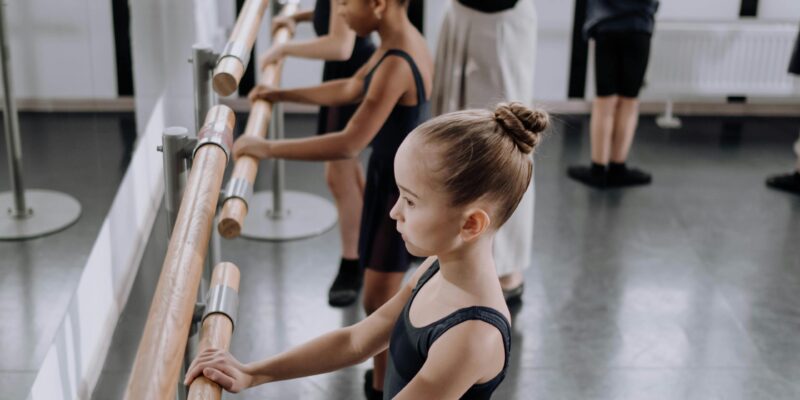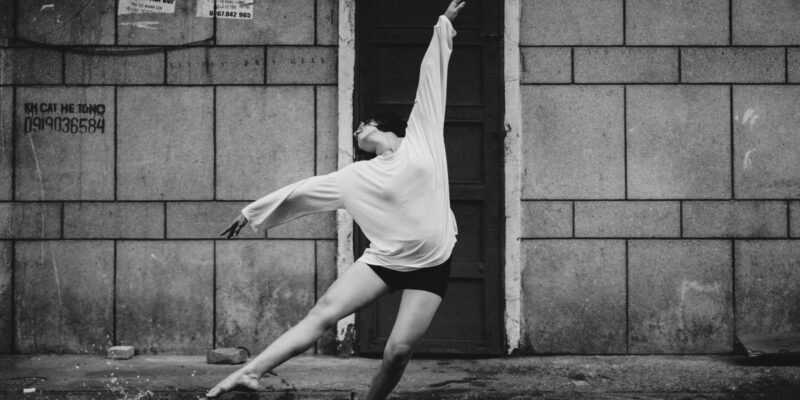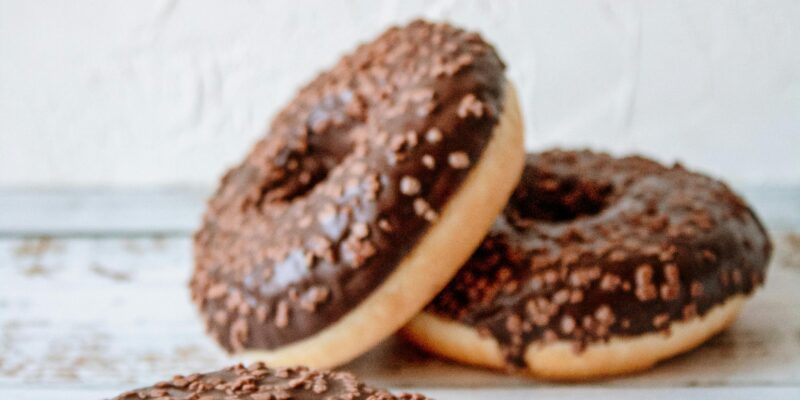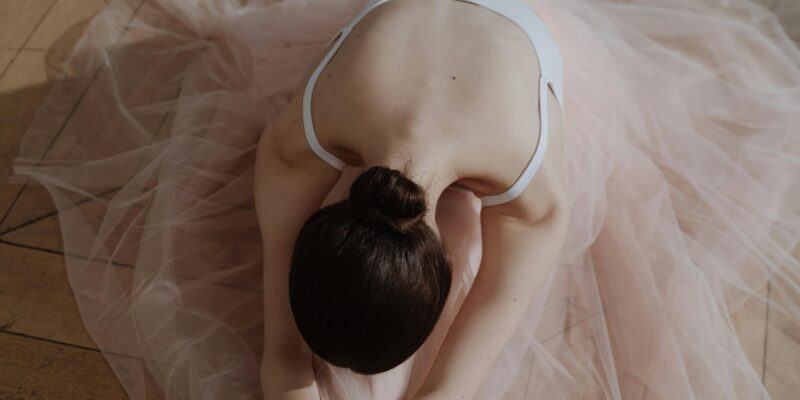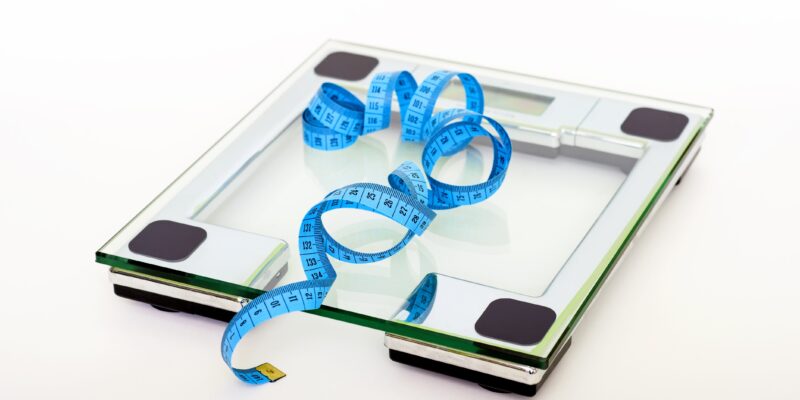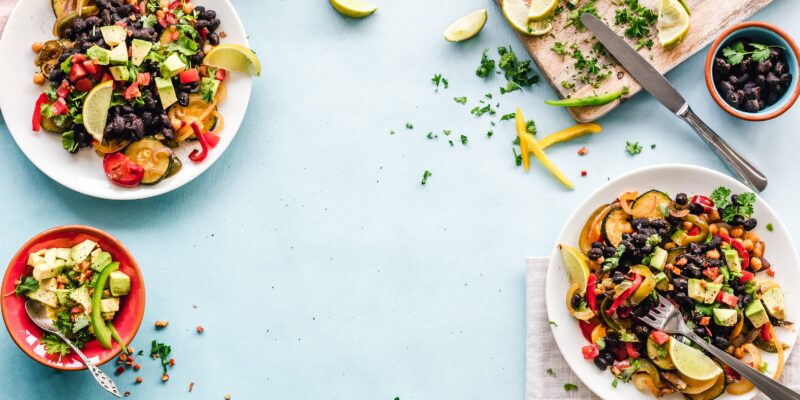As a dance parent, your role in fundamental to the success of your dancer’s career. This article provides first-hand experience and 5 key strategies to consider to support your dancer’s passion.
Read More...Dancers and Overeating
If you’re a dancer who feels stuck in a loop of “good” days and “bad” nights, know this: you are not doing anything wrong. You’re likely underfed, overtrained, and emotionally taxed. This article will help you understand why dancers “over-eat,” how that differs from binge eating, and how to stop swinging between feeling extremely in control and completely out of control around food. Spoiler: the answer is rebuilding trust with your body.
Read More...Can Dancers Create A Healthy Relationship with Food?
Your relationship with food is more than what’s on your plate— it’s the foundation of a sustainable, fulfilling dance career. And while “positive” might sound ideal, it can also feel unrealistic— especially if you’re struggling. That’s why I encourage dancers to aim for a working relationship with food: one that evolves, grows, and supports you through every stage of your journey. Here’s a step-by-step guide to help dancers build a healthier, more functional relationship with food.
Read More...Emotional Eating for Dancers: 5 Strategies to Navigate It Without Shame
The act of eating is emotional, and that’s not a flaw. It’s a fact of being human. And for dancers, who exist in high-pressure, body-conscious environments, this connection often runs even deeper. In this article, we’ll explore the #1 reason dancers turn to food emotionally, along with a practical, compassionate roadmap for navigating emotional eating.
Read More...5 Steps to Overcome Dancer Burnout and Reignite Joyful Movement
Dancers can feel burn out from a high-pressured environment that is unfortunately coupled with impossible food and body beliefs. In this instance, a dancer’s relationship with movement feels less joyous and more punitive. Learn more about how to prevent dancer burnout.
Read More...Common Myths About Intuitive Eating
Intuitive Eating isn’t a trend. It’s a transformative way to reclaim your autonomy over food and body— and it’s 100% compatible with the demands of a dancer’s life. But despite the growing popularity of the Intuitive Eating lifestyle, misconceptions are everywhere— and they can hold you back from fully embracing this powerful, non-diet approach. This article breaks down the most common myths and sets the record straight as to why you can benefit from the approach alongside performance nutrition.
Read More...What Is Food Flexibility & Why Do Dancers Need It?
Dancers require flexibility both in the studio and out. Heal your relationship with food using Food Flexibility. The more flexible you are in your food choices, the more willing you are to move through life’s vast experiences with agility and ease.
Read More...Food Neutrality & Healing From Dancer Diet Culture
For dancers, food neutrality means viewing food as simply fuel, not as “good” or “bad,” and making choices based on hunger and satisfaction, rather than guilt or restriction, to support physical and mental well-being. Viewing foods as “good” or “bad” (whether for health or performance) evokes anxiety and guilt, making us vulnerable to an all-or-nothing mindset. In this article, we uncover the benefits of a food-neutral lens for dancers.
Read More...Reduce The Risk of Disordered Eating & Eating Disorders In Your Studio
Dance educators are on the frontline: from cultivating an environment that supports the longevity of a dancer’s career to identifying challenges that occur inside the studio. Dance educators have the upper hand in helping to reduce rates of disordered eating, eating disorders, and body image challenges in the industry. This article will break down 5 specific strategies that dance educators can implement to cultivate a healthier environment in their studios.
Read More...Diet Culture in The Dance Industry
Diet culture is a system of beliefs that idolizes weight loss. In diet culture, it’s believed that thinness equates to health, and in this pursuit of thinness (or “health,”) certain foods are either demonized or glorified. Diet culture also imposes moral value upon our food choices and as a result, we’re “good” for eating “healthy” and we’re “bad” for eating “unhealthy.” Removing the weight diet culture can help dancers flourish in physical, mental, and emotional wellbeing.
Read More...Body Image Support for Dancers
How can dancers build a supportive body image? This article deconstruct various tools like body neutrality and body image resilience to help dancers build a supportive body image and lifelong body confidence.
Read More...25+ New Year’s Resolutions for Dancers
We know that diets don’t work within a year of starting and that weight cycling comes with countless negative health implications. In this article, I’m sharing my favorite non-diet resolutions to start your New Year in a way that supports YOU. The goal is to feel confident in your body, competent with your food choices, and supported mentally, physically, and emotionally.
Read More...How To Build New Years Resolutions That Last
The voice of diet culture is loud in January. The idea is that if we meet our “best body” or master the perfect extension, everything will fall into place. But here’s the reality check: This cycle of unrealistic, quick-fix resolutions is not sustainable. How do we set ourselves up for success this year? Let’s start by swapping out the pressure-filled resolutions for habits that work in real life.
Read More...Set Healthy Boundaries Against Dancer Diet Culture
Setting boundaries is essential for safeguarding our mental and emotional well-being, especially when it comes to our relationship with food. In a world dominated by diet culture, boundaries often get blurred or ignored. In this article, we’ll dive into what it means to set boundaries and why your self-worth plays a crucial role in your ability to protect yourself from the harmful effects of dancer diet culture.
Read More...The Truth About Food Addiction
Do you feel like you’re always thinking about your next meal? Do thoughts about what you “should” and “shouldn’t” eat play on repeat in your mind? Or, perhaps, it’s your fear of “once I start I’ll never stop!” In this article, we’re unraveling food addiction.
Read More...Journaling for Dancers: Getting Started
Guided journaling is fundamental to The Healthy Dancer®, particularly in understanding how our bodies respond to different foods (and our relationship with food). But with so many types of journals, it’s tricky knowing which can be right for you. In this blog post, we’ll explore two guided journaling practices I utilize with dancers and how each can support you.
Read More...How to compliment a dancer
Complimenting a dancer on their body’s weight, shape, or size not only reinforces harmful stereotypes but also, reduces a dancer’s worth to their weight. This undermines the years of training and hard work invested. In this blog post, we delve into why it is crucial to refrain from complimenting a dancer on their weight.
Read More...Weight Loss for Dancers
A dancer’s desire to lose weight is the reality of an industry saturated with aesthetic ideals. But here’s the deal: as a clinician, it’s my ethical duty to educate dancers about the hard facts of not only dieting, but also, systemic fatphobia. Therefore, weight loss isn’t a priority for The Healthy Dancer®. Now, despite weight loss not being a priority for The Healthy Dancer®, it could be a symptom as you build a supportive relationship with food.
Read More...Dancers and Food Rules: A Guide to Breaking Free
For dancers especially, maintaining supportive mealtime habits means breaking free from these strict food rules as part of a larger initiative to dismantle dancer diet culture and make peace with food (the first two fundamental values of The Healthy Dancer®. This blog post aims to explore the origins of food rules and offers practical strategies for dancers to break free from restrictive food rules.
Read More...Understanding Hunger—Your Cues to Eat
What happens when you ignore hunger cues? Learning how to reconnect with your innate feelings of hunger (and fullness), is an important component to a balanced lifestyle. Though not always practical, especially if you’re recovering from a history of eating disorders or simply navigating a hectic schedule, listening to your body’s mealtime cues is a critical skill. Therefore, let’s discuss 3 ways to reconnect with your innate hunger and fullness.
Read More...



